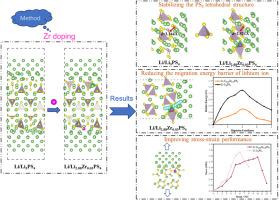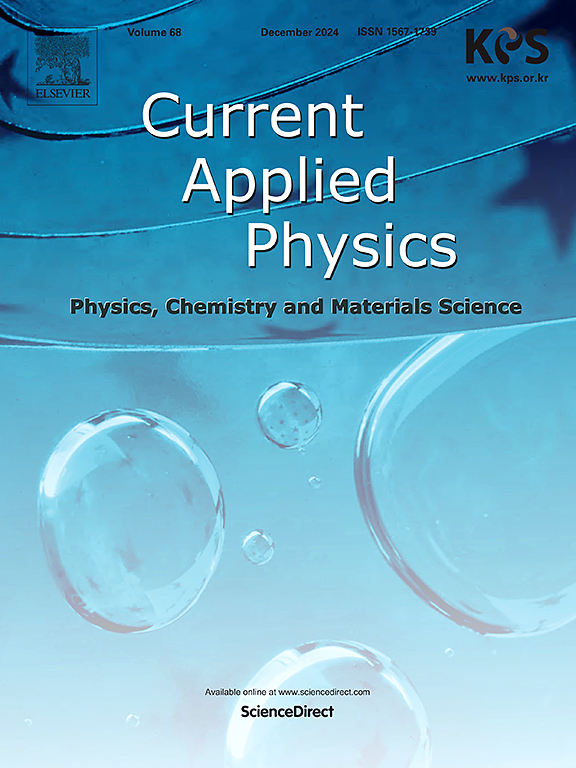通过第一原理计算探索掺锆硫化物固体电解质的界面稳定性
IF 2.4
4区 物理与天体物理
Q3 MATERIALS SCIENCE, MULTIDISCIPLINARY
引用次数: 0
摘要
利用第一性原理计算研究了掺杂 Zr 的硫化物固体电解质的界面特性。理论计算结果表明,Li/Li3PS4界面附近的PS4四面体结构受到严重破坏,而掺Zr硫化物固体电解质界面结构则有轻微变形。掺杂 Zr 的硫化物固体电解质界面上的锂离子迁移能垒相对低于 Li/Li3PS4 界面上的能垒。此外,应力应变分析表明,Li/Li3PS4 界面结构的最大应变仅为 6%,而掺杂 Zr 的硫化物固体电解质界面结构的最大应变为 10%。这可能是由于掺杂 Zr 能够阻止 S2- 扩散到锂金属阳极并稳定锂离子传输骨架。因此,掺杂 Zr 可以提高界面结构的稳定性。这项研究将为设计高性能的固体电解质以应用于全固态电池提供一个有用的视角。本文章由计算机程序翻译,如有差异,请以英文原文为准。

Exploring interfacial stability for Zr-doped sulfide solid electrolyte with first-principle calculation
First-principles calculations are employed to investigate the interfacial properties on the Zr-doped sulfide solid electrolytes. Theoretical calculation results show that the PS4 tetrahedral structure near the Li/Li3PS4 interface is severely damaged, whereas the Zr-doped sulfide solid electrolyte interface structure has a slight deformation. The Li ions migration energy barrier on the Zr-doped sulfide solid electrolyte interface is relatively lower than that on the Li/Li3PS4. Moreover, the stress-strain analysis indicates that the Li/Li3PS4 interface structure experiences a maximum strain of only 6 %, while the Zr-doped sulfide solid electrolyte interface structure experiences a maximum strain of 10 %. This may be attributed to the ability of Zr doping to prevent S2− diffusion into the lithium metal anode and stabilize the Li ion transport skeleton. Therefore, Zr doping can improve the interface structure stability. This study will provide a useful perspective for designing high performance of solid electrolytes for the application of all-solid-state batteries.
求助全文
通过发布文献求助,成功后即可免费获取论文全文。
去求助
来源期刊

Current Applied Physics
物理-材料科学:综合
CiteScore
4.80
自引率
0.00%
发文量
213
审稿时长
33 days
期刊介绍:
Current Applied Physics (Curr. Appl. Phys.) is a monthly published international journal covering all the fields of applied science investigating the physics of the advanced materials for future applications.
Other areas covered: Experimental and theoretical aspects of advanced materials and devices dealing with synthesis or structural chemistry, physical and electronic properties, photonics, engineering applications, and uniquely pertinent measurement or analytical techniques.
Current Applied Physics, published since 2001, covers physics, chemistry and materials science, including bio-materials, with their engineering aspects. It is a truly interdisciplinary journal opening a forum for scientists of all related fields, a unique point of the journal discriminating it from other worldwide and/or Pacific Rim applied physics journals.
Regular research papers, letters and review articles with contents meeting the scope of the journal will be considered for publication after peer review.
The Journal is owned by the Korean Physical Society.
 求助内容:
求助内容: 应助结果提醒方式:
应助结果提醒方式:


